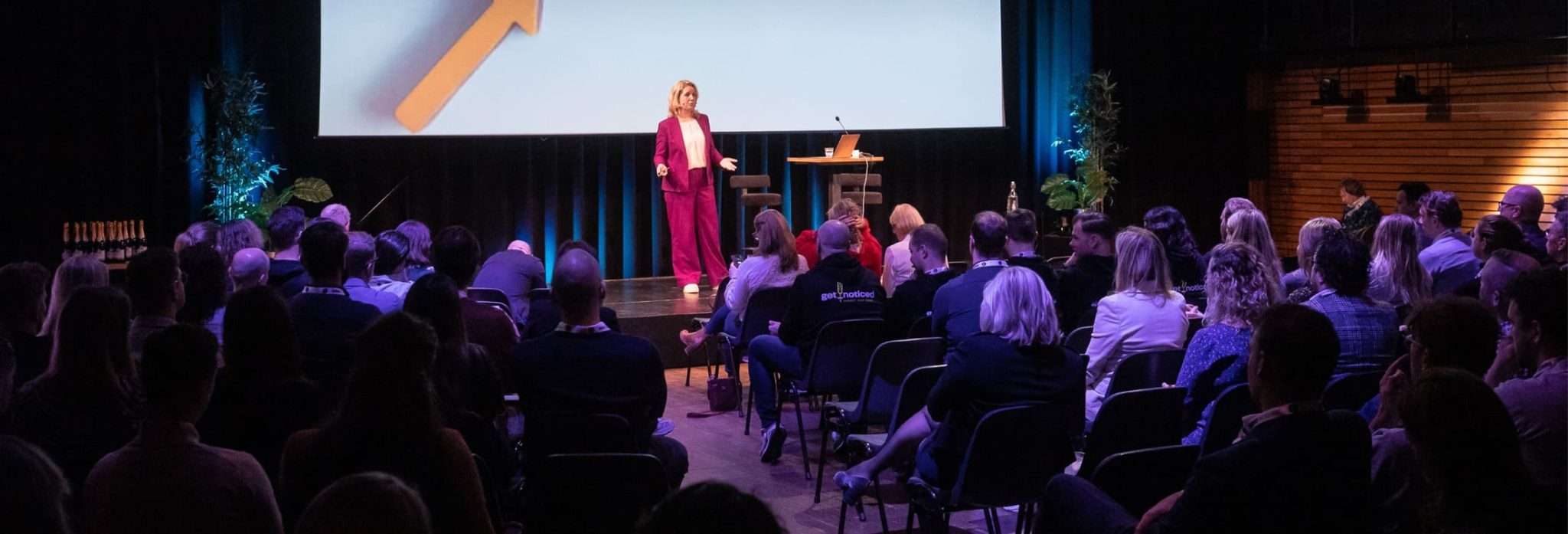
Lying in my bed, just before falling asleep, as a little girl about 10 years old, I imagined myself every evening flying above the earth. And every night I was wondering why the world was so busy doing so many unimportant things. Why travel to work, school and why did we have to work so much? What was the essence if all we wanted was to care, joy and love? But as so many others, i fit myself into that life, studied, worked hard, raised a family.
Until some years ago, when the thoughts of this little girl came back. I worked my entire life in the tech industry and I am very enthusiastic what technology can do for us. But robots are coming into the workplace and they are about to steal our jobs? Well, I thought, let them steal my job! I think I have to contribute other things then working day in and day out. What is my added value in this society and what is the work I am doing to pay form my mortgage but that i actually don’t really like, nor I am very good at? That robots can do much better than I can.
The current Corona crisis shows us where things need to change and that we can sees these opportunities if we use our own growth mindset, not to be busy getting back to how it was but thinking about what we want and how we can achieve this. Not to be afraid to lose what we had but to look ahead to what we can have. If 80% of employees worldwide (according to annual research by Gallup), do not feel engaged to their work and would do something different when they would keep their income to pay their basic needs, why not sees the opportunities and change that situation? My head is spinning these days, and i have more questions than answers, but i feel the time is now!
History
A lot of writers, philosophers and politicians argued already in the 19th century that we had to be careful about the combination between work and spare time and that we should aim not to work more than 3 hours a day. Also, Henry Ford, well know businessman, argued that we should not work too much but should have enough spare time, in his case, to be able to drive his cars. But since the 80’s in the 20th century we work harder and harder. Mainly due to the rise of technology and the globalization that came with that. We are not only busy during daytime but also on the evenings, but also the number of meetings, emails etc kept on increasing our daily work. And of course, the number of hours we make increased.
And of course, the development of technologies is not something new. As human beings we have used technologies to ease our work and lives. It started with machines that made our work easier, like plow machines for farmers. And then we created machines that made us work in factories, and that took away some of our tasks with the assembly lines. The internet made our world flat and supported us in our communications and made a lot of us into knowledge workers. And currently we are in a fast-developing technology trend. On one hand we have more and more robots that take over a lot of our tasks, for example in healthcare, but we also have a huge increase of data and AI. The last development is not only taking over our physical tasks, but also our knowledge and mental tasks. Actually, it is externalising our brains and even our feelings. Something that we thought was so typically human that it could not be transformed by technologies.
The definition of work
And with that we are also continuously developing our approach to work. From craftmanship and entrepreneurship in the 19th century, to being less valuable in the factories as human being, until the biggest asset for companies in the late 20th century. But what will be the value of human labour in the 20th of the 21st century? With Data & AI and Robots taking up a lot of the current work we do?
And the current crisis shows us in a very short term, what jobs are really important. Those jobs that we usually take for granted but are so crucial for our society to stay healthy, be educated and gives us individuals the freedom to go where we want to go. We finally see what jobs ad real value to our society, and we are grateful for those jobs. We also see that, now that culture, art and places to connect with friends and family, are closed, we need that to stay curious, connected and enjoy our human emotions. Why don’t we start immediately to pay for the added value of jobs, and not because some climbed up the corporate ladder?
But it is also a big experiment on how we combine our human potential with technologies. All of a sudden, all the current systems and situations in the work environment are upside down. Technology is helping us to keep working like we did before, and we face a lot of challenges in our human skills. How can we ensure we keep being connected, why do we miss the coffee corner talk so much? What did we actually do in the office?
There are some things that I have learned about work in the last 2 ½ weeks:
- Working at home, connecting through technology is really very productive;
- Being led by technology, like being in calls the whole day, is exhausting;
- The overload of emails to ensure that everyone know what you are doing is exaggerating;
- Finding time and means to chit chat with each other is very important;
- Creativity rocks. Everything that usually took a long time to go to market, is now easily being set up;
- Short term solutions are being created day after day;
- Leadership is very important to create trust, but top down hierarchy vanished;
- Joggling with family, school, work and uncertainty is very stressful;
At the same time, I also see that we try to work like we used to work and use technology to facilitate that. We are working old ways with new systems.
Using the current crisis
And this brings me to the current situation. We are in a big crisis. One that is attacking our health and all our healthcare systems. And showing us which systems don’t work anymore, like f.e. the stock markets, or even the European Union. And the one thing that keeps me busy, besides staying inside, executing my work and taking care of my family, is the question: ‘what would have been the situation if we all have a basic income”? Not only now, when we need it to overcome these difficult times. But for everyone, fixed and flex workers, Vice-presidents or teachers. The fear of losing our jobs and not being able to pay our mortgage would not exist. We would all be able to focus on what is really important! Have as many people stay healthy and taking good care of each other!
And we see and know that it is possible to pay every citizen a basic income. Not to overcome poverty, but to live in abundance. And technology is the solution. How?
First of all because the assets of organizations are changing. Where it used to be capital and labour, currently the biggest asset of companies are information and data. And those data and all the technology happens to be something that is owned by governments and citizens. The data about my behaviour, should be mine! The technology infrastructures are mostly developed by governments, like WIFI and 5G networks. Research done by money from taxpayers. And currently used by big tech corporate to earn a lot of money for their shareholders. The society is asking for something different. And paying a basic income, earned through the development of technology, can pave that way. We can use all our human potential to improve the things that really matters sustainability, education, and global responsibility.
What can we do?
So for me there is one conclusion and one outcome that can at least bring something positive about this crisis: a universal basic income! That does not mean that we will stop working. It will mean that we will continue to contribute our human potential to things that matter. But our human potential will flow to those area’s where our human potential is at its best, or most needed in our society. People will always want to add value, and even more if they can live in abundance. Look at the examples right now where we help each other and do good. So, make sure we take the fear of not having a pay check away, and give people the opportunity to develop themselves and add value to where they want to contribute. This can and will be rewarded, also financially. I have a couple of solutions at the different levels:
For you as individuals. Think about the added value and human skills you want to contribute to work and society and combine that with the knowledge that there are a lot of technologies that can do a lot of your tasks. Don’t take technology for granted, or let it overrule you, but take it into your own hands. Who do you want to be and how can you use your skills the best?
For organizations that will be re-opened after the crisis: don’t go back to how you worked before the crisis. Make your HR and IT director the leaders of your company. Let them set out the strategy for your company. How can we better connect real human skills like creativity, solution thinking, connecting, trust to the technologies that can better perform our tasks or make sure productive. The office space is not needed for email or regular tasks, it has shown that we are much more productive at home for those tasks. But make it a place of spontaneous meetings, for creativity sessions and for the love of your employees.
For society: stop paying taxes for human potential and start paying taxes for information and data. That is the new capital and need to be taxed. It is ours. We own it as society and as citizens, so all those companies that are a tech company or becoming one, change the whole tax system. With those taxes you can easily pay a basic income. And we will see that education will improve, healthcare will benefit, a sustainable world will not be too impossible anymore and human potential will flourish.
That little girl is still in me. Day after day I wonder about the world and us human beings living on this planet. We all want the same: being valued and adding value. And in the meantime, give and receive love. So it should not be too difficult to start changing the way we want to leave this world to next generations. Start today!
The future of work is not about work!

